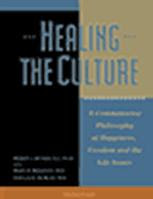 Ever hear of the so-called "Hundredth Monkey" principle? In simplified terms, it refers to a sort of collective consciousness, especially amongst social animals. The theory is that within a given group of animals, perhaps even throughout an entire species as a whole, the group itself may learn things, may acquire a pool of common knowledge, an awareness shared by all members. This depends upon a certain critical mass (e.g. 100 monkies) within the group. When the theoretical 100th monkey comes to learn something, the critical threshold is met, and the knowledge passes over into collective group consciousness. The whole group now automatically knows that thing without having to learn it one by one.
Ever hear of the so-called "Hundredth Monkey" principle? In simplified terms, it refers to a sort of collective consciousness, especially amongst social animals. The theory is that within a given group of animals, perhaps even throughout an entire species as a whole, the group itself may learn things, may acquire a pool of common knowledge, an awareness shared by all members. This depends upon a certain critical mass (e.g. 100 monkies) within the group. When the theoretical 100th monkey comes to learn something, the critical threshold is met, and the knowledge passes over into collective group consciousness. The whole group now automatically knows that thing without having to learn it one by one.
Very interesting. But this blog writer has something other than monkeys in mind. In human society, this phenomonon corresponds to what we call culture. It is our culture that tells us what clothes to wear, how to speak in certain situations, what behavior is acceptable, and so on. Rather than make a thousand difficult decisions in the course of an average week, the human animal can allow his culture to dictate how to handle those thousand situations. It's automatic; we navigate those events routinely, with little or no deliberation, drawing upon a sort of "group think" or collective consciousness to guide us.
This can work both for good and for ill. A sound human culture can be a powerful incentive toward honest and constructive behavior and a strong deterrent against criminal and immoral behavior. A wayward culture can steer people towards savage behavior. Sometimes the effect can be comical, as when everyone in a given past culture "knew" that the world was supported upon the back of a big turtle.
Now, since a human is much more complex than a monkey, the collective consciousness principle is also more complex in humans. For one thing, a strong individual human may very well operate to some extent against the predominant cultural grain. Similarly, a relatively small group of humans may break away from the mainstream and form a contrary counter-culture. This means that human culture may contain many sub-cultures and sub-sub-cultures, and these separate pools of consciousness may intersect with each other in complex ways. Moreover, human culture is capable of changing in a relatively short period of time, oftentimes quite dramatically. Some past blog posts offer a few thoughts on how human culture may change by small degrees and also by great tidal shifts.
We are at present obviously in the midst of great cultural turmoil. Many cultural assumptions of the past have been discarded, replaced by new and often unprecedented assumptions. Moreover, this appears to be a global phenomenon. Once distinct local cultures are picking up the mores of more dominant cultures, and the world is fast becoming one giant cultural ocean, with a wide variety of sub-cultural pools that are no longer geographically based. It is unclear where this cultural storm is headed.
No cause to disparage the phenomenon itself; it is simply the way we are wired. We are social beings, and this collective consciousness is an integral part of being human. Better to be aware that we are thus wired, and live within that awareness. Know also that we needn't be passive participants, that each one of us has the capacity to affect our culture, at least to some small degree. Better to seek the truth of things, and to possess the mental and moral tenacity to be willing to buck the dominant cultural tide when it is wrong. To be more than a passive follower; to deliberately nudge one's culture or sub-culture toward true values. To be, perhaps, that 100th monkey.




